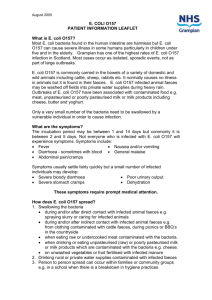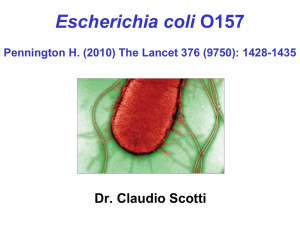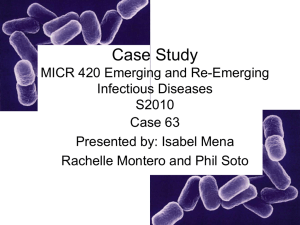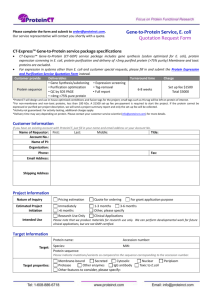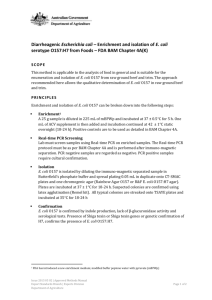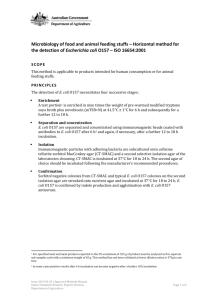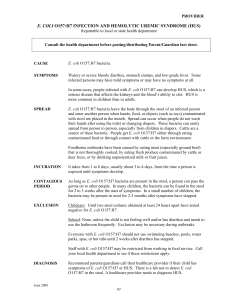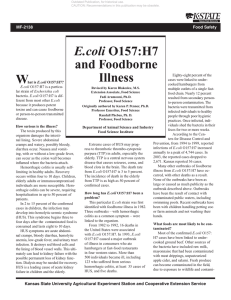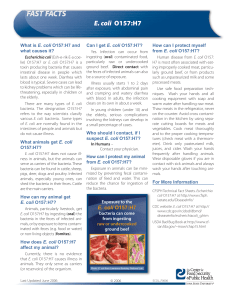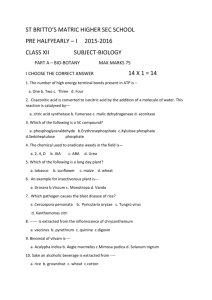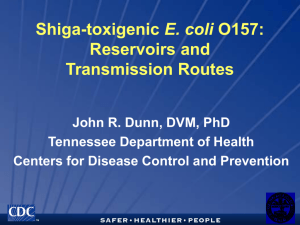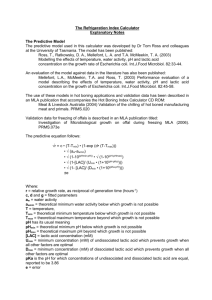What you need to know about E. Coli 0157
advertisement
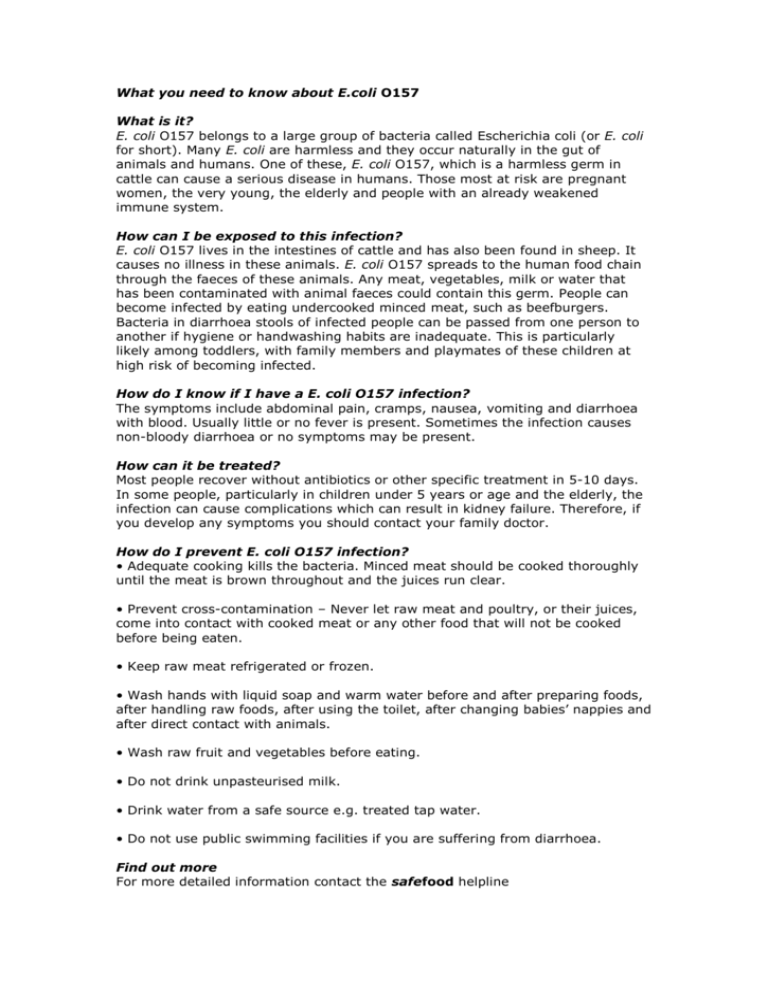
What you need to know about E.coli O157 What is it? E. coli O157 belongs to a large group of bacteria called Escherichia coli (or E. coli for short). Many E. coli are harmless and they occur naturally in the gut of animals and humans. One of these, E. coli O157, which is a harmless germ in cattle can cause a serious disease in humans. Those most at risk are pregnant women, the very young, the elderly and people with an already weakened immune system. How can I be exposed to this infection? E. coli O157 lives in the intestines of cattle and has also been found in sheep. It causes no illness in these animals. E. coli O157 spreads to the human food chain through the faeces of these animals. Any meat, vegetables, milk or water that has been contaminated with animal faeces could contain this germ. People can become infected by eating undercooked minced meat, such as beefburgers. Bacteria in diarrhoea stools of infected people can be passed from one person to another if hygiene or handwashing habits are inadequate. This is particularly likely among toddlers, with family members and playmates of these children at high risk of becoming infected. How do I know if I have a E. coli O157 infection? The symptoms include abdominal pain, cramps, nausea, vomiting and diarrhoea with blood. Usually little or no fever is present. Sometimes the infection causes non-bloody diarrhoea or no symptoms may be present. How can it be treated? Most people recover without antibiotics or other specific treatment in 5-10 days. In some people, particularly in children under 5 years or age and the elderly, the infection can cause complications which can result in kidney failure. Therefore, if you develop any symptoms you should contact your family doctor. How do I prevent E. coli O157 infection? • Adequate cooking kills the bacteria. Minced meat should be cooked thoroughly until the meat is brown throughout and the juices run clear. • Prevent cross-contamination – Never let raw meat and poultry, or their juices, come into contact with cooked meat or any other food that will not be cooked before being eaten. • Keep raw meat refrigerated or frozen. • Wash hands with liquid soap and warm water before and after preparing foods, after handling raw foods, after using the toilet, after changing babies’ nappies and after direct contact with animals. • Wash raw fruit and vegetables before eating. • Do not drink unpasteurised milk. • Drink water from a safe source e.g. treated tap water. • Do not use public swimming facilities if you are suffering from diarrhoea. Find out more For more detailed information contact the safefood helpline
